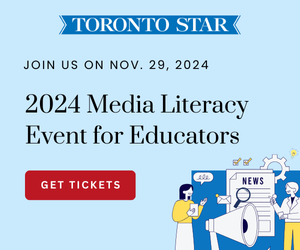
There were many fascinating news stories in 2011. Today and tomorrow TKN takes a look at some of the most significant news stories from the past year.
Protests and dissent
The year 2011 may be known as the year of “dissent” – the year people protested. In a number of Arab countries — including Tunisia, Egypt, Bahrain, Syria and Libya — people took to the streets to protest against their governments and many leaders were ousted. It was known as the Arab Spring. You can read more about Arab Spring here.
There were other protests closer to home. In North America and many other places around the world, young people rose up to protest the growing difference between the rich (the one per cent) and the rest (the 99 per cent). Read more about the Occupy movement. Here is a TKN editorial on it.
Disasters
In March 2011, the fifth-largest earthquake on record hit Japan, causing a massive tsunami. Read about the events in Japan.
In November, floods hit Thailand. TKN offered an exclusive, first-hand account of what it was like to live in Thailand during the flooding.
Canada was not without disaster in 2011 either. People around the world learned about the terrible living conditions in the remote first nations community of Attawapiskat in northern Ontario. And in April 2011, Manitoba’s Red River overflowed its banks.
Celebrity news
Canada and the world enjoyed the Royal Wedding between Kate Middleton and her Prince William. TKN reported on some of the bizarre and interesting items people were selling to commemorate the royal wedding.
And of course, what round-up would be complete without the stunning news of Justin Bieber‘s change in hairstyle? When he cut his hair, it made headlines around the world – and 80,000 followers dropped him on Twitter.
CURRICULUM CONNECTIONS
By Jonathan Tilly
Writing/Discussion Prompt
Of all the news stories you read or heard this year, which were the stories you found most interesting? Why do you think that those stories were the most fascinating?
Reading Prompt: Text Patterns
Today’s story is written in four sections. Three of the sections have headings (a short title at the beginning of a new part). Why would an author choose to write a story this way? How might it help readers better understand what they are reading?
Primary & Junior
Recognize a few organizational patterns in texts of different types, and explain how the patterns help readers understand the texts (OME, Reading: 2.2).
Intermediate
Analyze increasingly complex texts to identify organizational patterns used in them and explain how the patterns help communicate meaning (OME, Reading: 2.2).
Grammar Feature: Abstract Nouns
A word that tells a feeling, emotion, understanding, or idea is called an abstract noun Abstract nouns are words that can’t be seen, heard, touched, tasted, or smelled. In the following example, the word “dissent” is an abstract noun because it a thing that you feel. It is not something you know with your senses.
“The year 2011 may be known as the year of “dissent” – the year people protested.”
Write “A.N.” beside all of the abstract nouns in the examples below.
1. dog ________ 2. car ________
3. fair ________ 4. smart ________
5. glasses ________ 6. Alex Ovechkin ________
7. fire ________ 8. love ________
9. beauty ________ 10. sun ______







